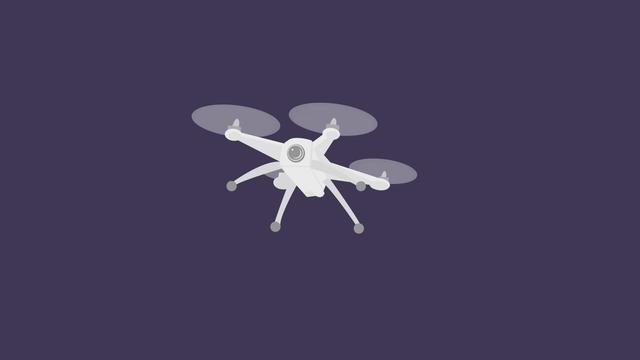The deputies examine until September 23, the draft law on criminal responsibility and internal security, which includes arrangements censored by the Constitutional Council following debates on the Act respecting the overall security.In particular, the text presented by the government plans to authorize and supervise the use of drones by the police to capture and record images.
But parliamentarians are not the only ones working on it.The defender of rights has just delivered a legal study of the text, addressed above all to Parliament, with the publication of its opinion on September 20.The 13-page document analyzes seven articles in the bill, which currently has twenty-six.It turns out that the provisions on the capture of images occupy a large place of the analysis.
Freedoms are not guaranteed enough
The conclusions are not tender with the project from which the Interior Ministry will benefit, which oversees the national police and the gendarmerie.In her conclusions, Claire Hédon, in post since July 2020, declares that the measures established in article 8 - the one who offers a new legislative framework so that the police can film with drones - are too weak.
These provisions "do not ensure balanced conciliation between the objectives of constitutional value of prevention of public order and research of the authors of offenses and the right to compliance with privacy", she warns.The use of these drones is also likely to have a deterrent effect on people who want to demonstrate, while it is a public freedom constituted constitutionally.

The police already used these devices, but without dedicated legal framework.// Source: efficient
The defender of rights recommends, if parliamentarians go in this direction, a "strict" supervision of these devices, because the technology on which they rely is "particularly intrusive" and "can have consequences on the exercise of freedoms".If video surveillance has become generally very widespread, that does not make it trivial, however, recalls Claire Hédon.
In its decision concerning the law on global security, the Constitutional Council had indicated not to reject in principle the use of police drones to capture images.The institution had nevertheless deplored a legal framework that is too wide and poorly bordered by guarantees.Given the imbalance between preservation of public order and respect for privacy, it was necessary to censor the article.
Guarantees, but insufficient
The independent institution admits, certainly, in its opinion that the bill proposed by the government on the capture and registration of cameras on drones for the benefit of the police "provides guarantees" compared to whatwas envisaged in the law on global security, which was partly invalidated during its constitutional verification.But it remains insufficient.
Thus, it is noted the absence of the consultation of an independent authority to "examine a priori the reasons" for employment of these cameras, as well as "the planned guarantees".Nor is there any a posteriori control of "conditions of renewal of such a measure", while it is the use for other systems aimed at collecting information or noting offenses.
"In addition, continues the defender of the rights, there is no planned collection of consent of filmed persons, but simple information whose terms are not specified and which will not be systematic since exceptions will be determined by decree".His opinion summons the decisions and advice of the Constitutional Council, of the Council of State, but also of the CNIL.
These drones served in particular during the first confinement, to verify if it was well respected.// Source: Pixabay
The defender of rights also regrets insufficiently precise drafting of the law.Thus, if the presentation of the reasons is affirmative to delimit employment, this framework is not as clear in the article itself.In addition, the purposes in which the use of drones is possible "remain general and not very detailed".Clearly, the legislator would be clear to rewrite the law more precisely.
Finally, Claire Hédon also explains certain circumstances in which on the one hand the guarantees included in the bill "could be bypassed", and thus leave the field open to the police to act without these safeguards, and'otherwise the use of these devices "may become de facto permanent".The defender of rights thus marries the fears of the CNIL on insufficient formulations.
This text aims to legalize a practice of the police which was not supervised, and whose media coverage had occurred during the very first confinement, in 2020.In December, the Council of State considered that it was a serious and manifestly illegal damage to the right to respect for privacy.The CNIL subsequently denounced the practices of the Ministry of the Interior, with a public questioning.
360 Caméra Vidéo Market Size & Share 2022 – Global Business Review, Key Findings, Forecast by Regions, Growth Strategy, Developing Technologies, Trends and Company Profiles – Sphericam Inc, Panono, Bubl, Samsung – athleduweb.be
Yubico unveils its security key with fingerprint reader
5 Bonnes Raisons d’Acheter La Huawei Watch Fit Special Edition Noir
Comment Utiliser le Honor Magic 6 Lite et MagicOS 7.2 : Combinaison Parfaite de Technologie et D'humanité